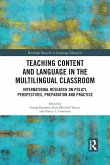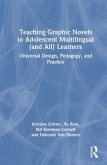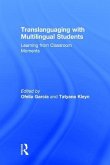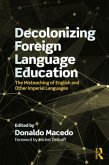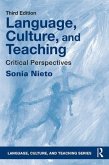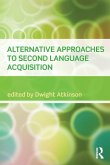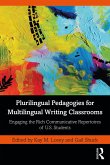Drawing on the latest developments in bilingual and multilingual research, The Multilingual Turn offers a critique of, and alternative to, still-dominant monolingual theories, pedagogies and practices in SLA, TESOL, and bilingual education. Critics of the 'monolingual bias' argue that notions such as the idealized native speaker, and related concepts of interlanguage, language competence, and fossilization, have framed these fields inextricably in relation to monolingual speaker norms. In contrast, these critics advocate an approach that emphasizes the multiple competencies of bi/multilingual learners as the basis for successful language teaching and learning.
This volume takes a big step forward in re-situating the issue of multilingualism more centrally in applied linguistics and, in so doing, making more permeable its key sub-disciplinary boundaries - particularly, those between SLA, TESOL, and bilingual education. It addresses this issue head on, bringing together key international scholars in SLA, TESOL, and bilingual education to explore from cutting-edge interdisciplinary perspectives what a more critical multilingual perspective might mean for theory, pedagogy, and practice in each of these fields.
This volume takes a big step forward in re-situating the issue of multilingualism more centrally in applied linguistics and, in so doing, making more permeable its key sub-disciplinary boundaries - particularly, those between SLA, TESOL, and bilingual education. It addresses this issue head on, bringing together key international scholars in SLA, TESOL, and bilingual education to explore from cutting-edge interdisciplinary perspectives what a more critical multilingual perspective might mean for theory, pedagogy, and practice in each of these fields.
"This important contribution to educational linguistics... adds a much-needed social perspective to the theory of SLA, English language teaching, and bilingual education. It takes a useful and needed step in moving beyond the monolingual and psycholinguistic biases of researchers in SLA and TESOL."
Bernard Spolsky, Bar-Ilan University, Israel
"Boundary-breaking, with wonderful width as well as originality, this book is at the cutting edge. The star-studded list of chapter authors are THE experts in their fields of study."
Colin Baker, Bangor University, UK
"The critical approach to SLA, TESOL, bi- and multilingual education raises much needed questions about the usefulness of subject-bounded approaches to second language teaching. The case for multidisciplinary frameworks is well-made."
Naz Rassool, The University of Reading, UK
Bernard Spolsky, Bar-Ilan University, Israel
"Boundary-breaking, with wonderful width as well as originality, this book is at the cutting edge. The star-studded list of chapter authors are THE experts in their fields of study."
Colin Baker, Bangor University, UK
"The critical approach to SLA, TESOL, bi- and multilingual education raises much needed questions about the usefulness of subject-bounded approaches to second language teaching. The case for multidisciplinary frameworks is well-made."
Naz Rassool, The University of Reading, UK


